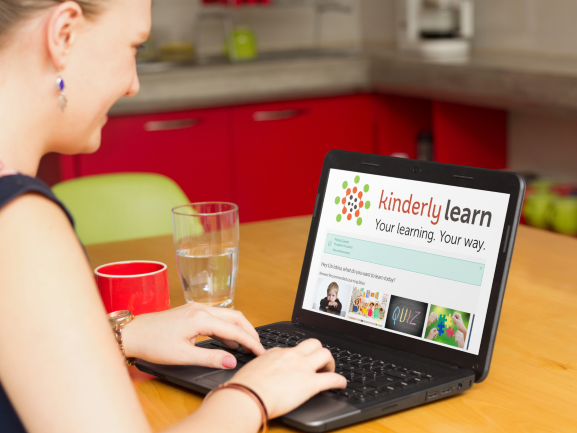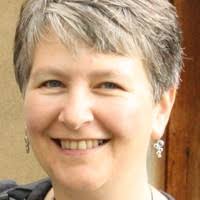We know that learning and CPD for early years practitioners can be a bit of a minefield in terms of what you need to know and how best to keep on top of it all. So we’ve asked our early years expert Rebecca Martland to help clarify a few points and answer some frequently asked questions with the aim of supporting your own learning and development. We hope this information will help you deliver best practice in your setting and to be prepared for an Ofsted inspection.
CPD is short for ‘continuing (or continuous) professional development’. This describes the activities you undertake to develop your abilities and understanding in your professional role. It refers to everything you do to improve your skills, remind yourself of things you have forgotten and update your current knowledge and understanding.
Effective CPD involves a process of identifying gaps in what you can do and what you know; finding ways to fill those gaps; then reflecting on the impact this has had on both your practice and the children you care for. It is a cyclical process that never ends as there is always something new to learn.

It helps you keep up to date
We live in a rapidly changing world, with new legislation, theories and technologies being introduced seemingly every day. Through regular CPD you can keep up to date with these changes and know the implications for you and the children in your care. Similarly, learning about theories developed by early years pioneers, such as Froebel, Piaget and Vygotsky, can help you to understand how current practices have come about and to assess their benefits and shortcomings and relevance to your practice.
It helps you improve your skills
CPD enables you to adapt your ideas and teaching in light of new information. Knowing why we do something and reflecting on this invariably helps us to do it better. This will inevitably have a positive impact on the children in your care.
It boosts your confidence
Regular CPD leads to enhanced self-confidence and improved practice. It enables you to develop your competence in caring for young children and helps you to demonstrate your commitment in this role. Doing accredited training can lead to higher qualifications and achieving your career goals. It is often a requirement for membership of quality assurance programmes and professional bodies, such as PACEY.
It is a professional requirement
The Statutory Framework for the Early Years Foundation Stage (EYFS) makes ongoing CPD training a requirement and explains why this is important:
‘’Providers must support staff to undertake appropriate training and professional development opportunities to ensure they offer quality learning and development experiences for children that continually improves.’’
CPD can take many forms. It can be interactive, such as attending a training course, or self-directed, such as reading an article online. It can be planned, with specific learning intentions in mind or ad hoc, such as when the title of an article catches your eye whilst browsing social media. The important thing is that you benefit from it and that it has a positive impact on the children in your care.
As a minimum, I aim to attend one conference per year, two or three face-to- face training sessions or webinars per term, and read three or four articles per week. I always have a book on the go, and I check the news and social media updates daily. I am also signed up to receive numerous newsletters and alerts including from .gov.uk, Ofsted, PACEY, the Early Years Alliance, NDNA, my Local Safeguarding Partnership and the NSPCC.

There are no specific rules regarding how much time you should spend on CPD. Section three of the EYFS however, sets out certain training requirements that early years practitioners must meet, including:
As part of the new Education Inspection Framework (EIF) Ofsted inspectors will want to discuss with you how you evaluate your setting and practice, and how you use this to inform your professional development. Whilst there is no longer a requirement to produce a written self-evaluation form, it is helpful to keep some basic notes to remind you of what training you have completed, why you did it, what you changed or implemented as a consequence and what the impact was on the children.
This links closely to the Ofsted concept of the 3 I’s of curriculum, but instead of thinking about a curriculum for the child you are thinking about your own, self-directed curriculum:

Kinderly Learn is a unique online CPD platform and has been developed with early years experts to help early years professionals keep on top of their CPD. Kinderly Learn recognises that time is often at a premium and so enables learners to complete their CPD at a time, place and pace to suit them.
There are live expert webinars every week, with over 200+ available to watch on-demand, plus over 400 courses which are designed to be flexible so you can do them at any time – as well as making learning fun and engaging. Keeping up to date, organised and informed has never been easier!
Rebecca Martland

Rebecca has over 18 years’ experience in the early years sector, as a registered childminder; early years trainer, consultant and author. She is a qualified teacher and Early Years Professional and is Kinderly’s resident ‘expert’ on the Kinderly Learn platform.
Rebecca is a staunch advocate of play based, child-centred education and childcare. This philosophy is at the centre of her training and a message she shares widely as an active member of the early years community. Find out more at: www.childrenatheart.net